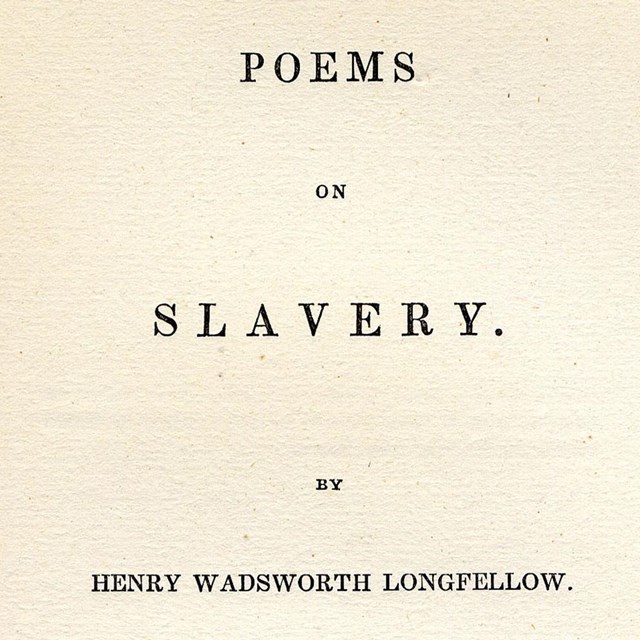|
Although known primarily as a poet and scholar, Henry Wadsworth Longfellow (1807-1882) was also an abolitionist who used his poetry, and his money, to further the cause of the anti-slavery movement in the mid-nineteenth century. In 1842 Longfellow wrote Poems on Slavery to help draw attention to the cruel and inhumane nature of slavery. The publication of these poems helped establish Longfellow as a known figure in the abolitionist cause. Longfellow also maintained an extensive network of contacts with prominent abolitionists. Many of these people knew Longfellow personally, were his friends, and often visited his house at 105 Brattle Street in Cambridge. Others he knew through correspondence. He even helped support the abolitionist cause financially through contributions to organizations and individuals. The archives at Longfellow House - Washington's Headquarters National Historic Site hold many items related to the issues of slavery and abolition in the United States. Collected or created by different Longfellow family members, these items help paint a picture of the Longfellow family's perceptions of slavery and their roles as supporters of abolitionism.
|
Last updated: September 13, 2025





